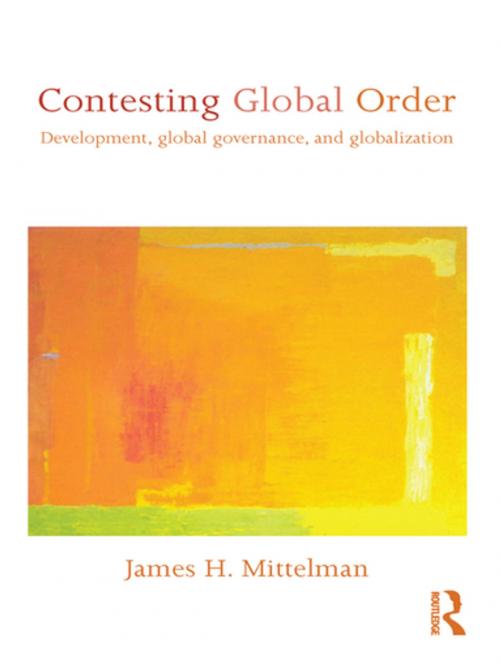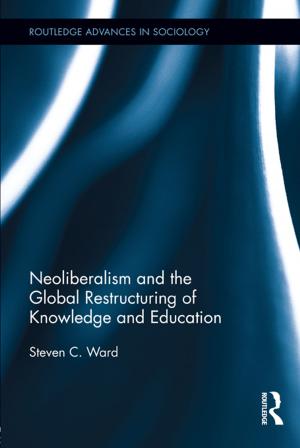Contesting Global Order
Development, Global Governance, and Globalization
Nonfiction, Social & Cultural Studies, Political Science, Politics, Economic Conditions, International, International Relations| Author: | James H. Mittelman | ISBN: | 9781136865060 |
| Publisher: | Taylor and Francis | Publication: | February 25, 2011 |
| Imprint: | Routledge | Language: | English |
| Author: | James H. Mittelman |
| ISBN: | 9781136865060 |
| Publisher: | Taylor and Francis |
| Publication: | February 25, 2011 |
| Imprint: | Routledge |
| Language: | English |
Contesting Global Order traces dominant values and patterns on a world level over the last half century. Including a framing introduction written for the volume, this book presents James H. Mittelman’s most influential essays. It offers cross-regional analysis, drawing on his fieldwork in nine countries in Africa and Asia.
This research explores mechanisms by which prevailing knowledge about global order is implicated in its deep tensions: chiefly, the impetus for development and global governance embodies aspirations for attaining wellbeing and upholding human dignity; yet market- and state-driven globalization embraces basic ideas inscribed in power, thus increasing vulnerability and making the world more insecure. Rather than exalt one element in this quandary over another, Mittelman shows how different aspects of the relationship collide. Examining cases of specific localities, international organizations, and social movements, this grounded study unveils evolving structures that shape our times. It projects scenarios for future global order and how to make it work for the have-nots.
Mittelman consistently forges a critical perspective throughout this collection. His reflections cut against conventions in international studies and, more generally, global order. This volume will be of great interest to all students and practitioners of development, global governance, and globalization.
Contesting Global Order traces dominant values and patterns on a world level over the last half century. Including a framing introduction written for the volume, this book presents James H. Mittelman’s most influential essays. It offers cross-regional analysis, drawing on his fieldwork in nine countries in Africa and Asia.
This research explores mechanisms by which prevailing knowledge about global order is implicated in its deep tensions: chiefly, the impetus for development and global governance embodies aspirations for attaining wellbeing and upholding human dignity; yet market- and state-driven globalization embraces basic ideas inscribed in power, thus increasing vulnerability and making the world more insecure. Rather than exalt one element in this quandary over another, Mittelman shows how different aspects of the relationship collide. Examining cases of specific localities, international organizations, and social movements, this grounded study unveils evolving structures that shape our times. It projects scenarios for future global order and how to make it work for the have-nots.
Mittelman consistently forges a critical perspective throughout this collection. His reflections cut against conventions in international studies and, more generally, global order. This volume will be of great interest to all students and practitioners of development, global governance, and globalization.















